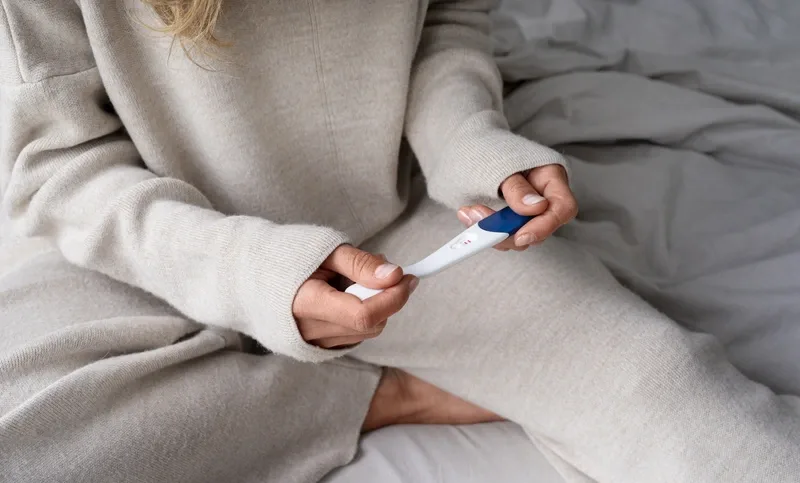Fertility naturally declines with age. The chances of natural conception potentially decrease as women reach the late 30s to early 40s, with the most noticeable drop occurring after the age of 45. However, women can still conceive until they reach menopause.(1)
Menopause is marked by 12 consecutive months without menstruation. At this point, natural pregnancy is no longer possible, as the ovaries stop releasing eggs. However, advances in fertility treatments, such as in vitro fertilization (IVF), have created opportunities for some women to have children even after menopause, though these methods come with possible risks.
This article explores how menopause affects fertility, the options available to conceive after menopause, and the potential risks of those options. By understanding these changes and methods, women can make informed and confident decisions about their reproductive health during this transformative stage of life.
How can a woman get pregnant after menopause?
Assisted reproductive technology (ART) has made pregnancy possible for women even after menopause. In vitro fertilization (IVF) is one of the most common options.(2)
IVF involves fertilizing an egg with sperm in a laboratory to create an embryo, which is then transferred to the uterus. However, it’s important to consider its potential risks.(3) Careful medical oversight is essential to manage these risks and ensure the best possible outcome for both the mother and the baby.
Risks of Getting Pregnant After Menopause
As women age, the likelihood of complications during pregnancy increases. Women who conceive at the age of 35 or older may face a higher risk of the following:(2)(3)
Cesarean delivery (C-section)
Chromosomal abnormalities, such as Down syndrome
Miscarriage
Premature birth
Gestational diabetes
Preeclampsia
Gestational hypertension
Perimenopause and Pregnancy
Perimenopause, the transitional phase leading up to menopause, marks a gradual decline in fertility. During this time, ovulation becomes irregular, but pregnancy is still possible as long as viable eggs are released.
Women are born with 1–2 million follicles in their ovaries, each with the potential to develop into an egg. By puberty, this number drops to around 300,000–500,000, and only about 300 eggs are released over the reproductive years. As women age, the number and quality of these eggs naturally decline through a process called atresia. This decline rapidly accelerates by the age of 37.(1)
Hormonal fluctuations compound the challenges of conceiving during perimenopause. Changes in estrogen levels and the rising levels of follicle-stimulating hormone (FSH) contribute to irregular ovulation. However, pregnancy can still happen if ovulation occurs and a viable egg is fertilized.(1)
Since unplanned pregnancies are still possible during perimenopause, it’s recommended to use contraception until menopause is confirmed. A healthcare provider can help guide women through this transitional phase, whether the goal is to conceive or to avoid pregnancy.

Symptoms of Ovulation During Perimenopause
Ovulation during perimenopause may not follow the same patterns as it did earlier in life. While the symptoms are often similar, they can become less predictable and occur less frequently. (4)
Common indicators of ovulation include thick cervical mucus, increased basal body temperature, and the presence of luteinizing hormone (LH) in urine.(5)
Signs of Pregnancy During Perimenopause
Pregnancy and perimenopause share many similar symptoms, which can make it challenging to distinguish between the two. Here are some common symptoms that can occur in both cases:
Mood swings
Fatigue
Weight fluctuations
Frequent urination
Abdominal cramps
Understanding Pregnancy During and After Menopause
While natural conception becomes increasingly unlikely as women approach menopause, pregnancy remains possible during perimenopause due to sporadic ovulation. After menopause, ovulation completely stops, and natural pregnancy is no longer an option. However, assisted reproductive technology, such as IVF, offers new possibilities for women who wish to have children later in life.
Understanding the changes in fertility during perimenopause and menopause, along with the potential risks and options available, can empower women to make informed decisions about their reproductive health.